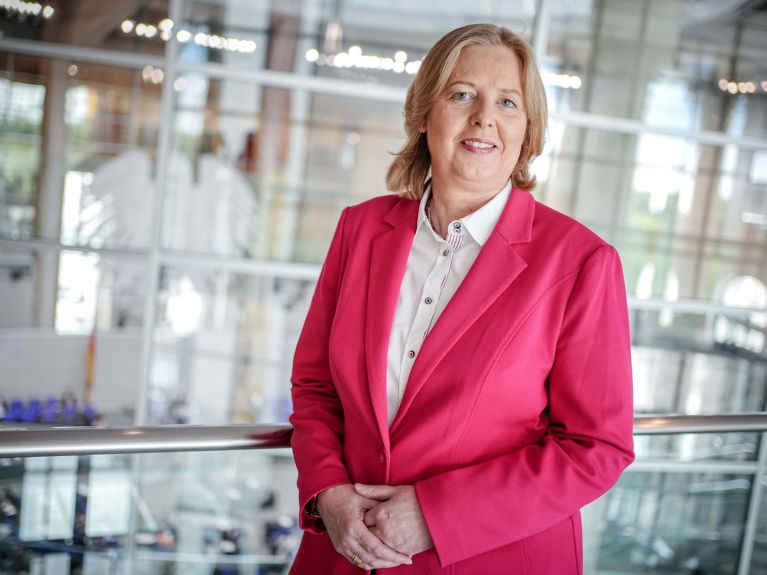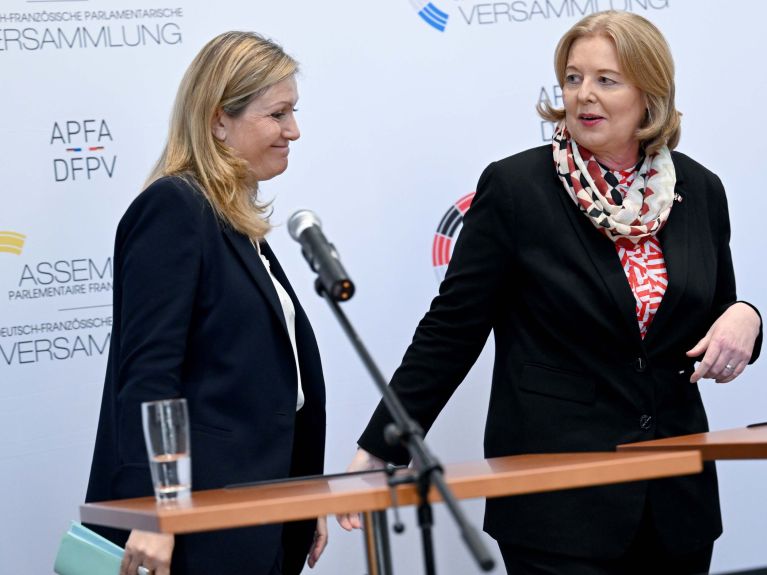“Europe needs this engine”
Bundestag President Bärbel Bas, along with her French counterpart Yaël Braun-Pivet, heads the Franco-German Parliamentary Assembly.

The Franco-German Parliamentary Assembly now has 50 members from the German Bundestag and 50 members from the French National Assembly. The constituent meeting of this special body took place on 25 March 2019. Currently, the Assembly is headed by Bundestag President Bärbel Bas and her French counterpart Yaël Braun-Pivet. Bas speaks about the joint work done by the parliaments, the two female heads and Franco-German cooperation.
Ms Bas, the Franco-German Parliamentary Assembly is celebrating its fifth anniversary this year. What is the significance of the Assembly in your opinion?
The Franco-German Parliamentary Assembly is very important for our two parliaments, even if not everyone in our two countries is aware of it. I am very grateful to my predecessor Wolfgang Schäuble, who died recently, for initiating the Assembly. It is a unique institution in Europe that highlights our partnership and reciprocal ties. But that’s not all: We also talk about concrete issues and reach joint decisions.
Which concrete results have there been?
During the course of its first five years, the Assembly has already addressed many topics – most recently reciprocal language learning. Sadly, the number of pupils in Germany who learn French - and the number of pupils in France who learn German - is declining all the time. In 2023, this is something we discussed during two of our meetings. Economic, financial and foreign policy matters have also been on the agenda, as has collaboration in our border region. We also had a special meeting during the coronavirus pandemic. At this meeting, members of the Assembly questioned the interior ministers of the time, Horst Seehofer and Christophe Castaner, about the government measures taken in response to the pandemic, and especially about the border controls. The Franco-German Parliamentary Assembly can launch initiatives and give recommendations to the two governments.

You head the Assembly alongside your French counterpart Yaël Braun-Pivet. What is the significance of having two women at the helm of this body for the first time?
I highly value Yaël Braun-Pivet. We have a lot in common and are both staunch democrats who want to make an impact in politics - including for women. For instance, we are pushing for closer links to other female parliamentary presidents in Europe. For decades, men have predominantly held the top government positions in our two countries. So our message is quite clear: Nowadays, the Franco-German friendship is also driven by women.
Mutual trust and our mutual commitment to a peaceful, strong and united Europe form the foundation for our friendship.
What defines the Franco-German friendship in your view?
France is our closest partner. Mutual trust and our mutual commitment to a peaceful, strong and united Europe form the foundation for our friendship. Naturally, we have different approaches in some areas, such as on the question of energy supply. Political structures also differ in our two countries. But that does not hinder the cooperation between our parliaments. Politics requires debate, which is part and parcel of a thriving democracy. Despite our differences, we listen to and support one another. To engage more deeply with issues, the Assembly uses working groups that draw up recommendations and propose solutions.
Does Europe still need the Franco-German engine?
Yes, absolutely. Europe needs this engine. Especially now, as we face so many alarming crises. Populists are on the rise in many countries, and we are seeing trust in democratic institutions decline in our countries, too. For decades, France and Germany have shown that it is possible, despite differing positions, to treat one another with respect and to cooperate constructively. In such times as these, this serves as a genuine anchor. Franco-German cooperation in Europe is also needed as a guarantee of reliability and continuity.


